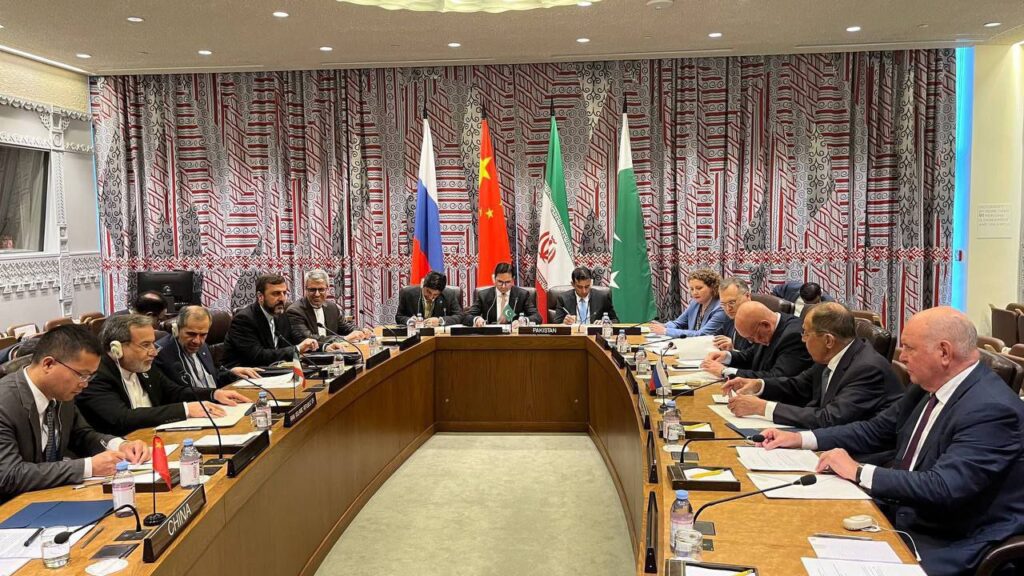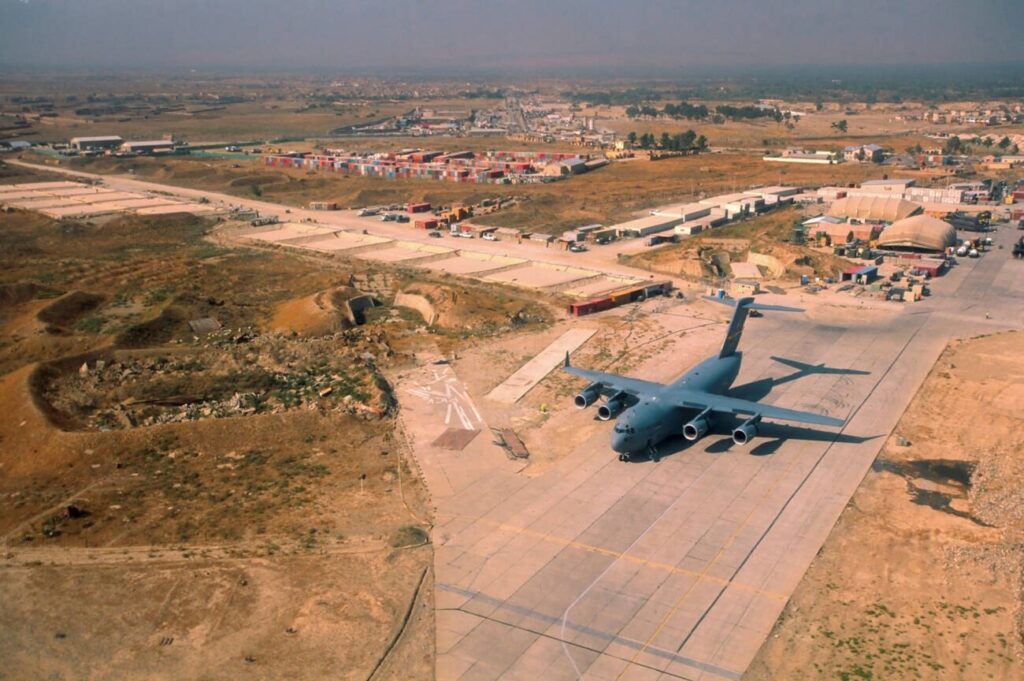Review of Afghanistan developments
The repeated statements made by the US President regarding the seizure of the Bagram base in Afghanistan have prompted regional nations to adopt their own stances. The significance of this matter for Beijing, Moscow, and Tehran is such that representatives from the Russian and Chinese Foreign Ministries, along with the Secretary of the Supreme National Security Council of Iran, have responded to the US’s return to Bagram during their speeches. Previously, at the quadrilateral meeting involving Russia, Iran, China, and Pakistan concerning Afghanistan, which took place on the sidelines of the United Nations General Assembly in New York, the foreign ministers of these four nations expressed their strong opposition to the re-establishment of foreign military bases in Afghanistan. Approximately a year ago, during the sixth Moscow format meeting, Russian Foreign Minister Sergei Lavrov stated that the return of military infrastructure from third countries to Afghanistan or the creation of new military facilities in its neighboring regions under any justification is unacceptable. In light of these reactions, it can be concluded that a regional consensus opposing the US’s intent to return to Afghanistan has emerged more swiftly than anticipated.
The countries within the region that approved the US military incursion into Afghanistan in 2001 are currently united in their efforts to resist the US’s return to Bagram. This resistance stems from the significant repercussions of Washington’s military involvement in Afghanistan, which has led to insecurity and political turmoil in the area. It is crucial to recognize that opposing a potential US action will be challenging for the region.
Afghanistan has historically been a focal point in global power dynamics across various periods. At present, the nation’s strategic location adjacent to China, Russia, Iran, and Pakistan renders it a geopolitically sensitive area, where the presence of the United States could influence the power equilibrium within its four distinct security contexts. Consequently, Russia, a key player in the Eurasian security framework, China, the principal actor in the East Asian security landscape, Iran, a participant in the Middle Eastern security arrangement, and Pakistan, a member of the South Asian security structure, express concerns regarding the potential return of the United States to Afghanistan and the objectives that may accompany this return.
One of the primary themes highlighted in the joint statement from the quadrilateral meeting involving China, Russia, Iran, and Pakistan, which took place on the sidelines of the UN General Assembly, was the apprehension regarding the existence of terrorist organizations in the region and Afghanistan. The statement explicitly references groups such as ISIS Khorasan, Al-Qaeda, Tehreek-e-Taliban Pakistan, Jaish-ul-Adl, and the Balochistan Liberation Army. Each of these entities represents a direct threat to the four security frameworks surrounding Afghanistan. China is particularly worried about the infiltration of Uyghur extremists into the Xinjiang region, while Russia expresses concern over the expansion of ISIS Khorasan into Central Asia. Iran is currently facing assaults from Jaish-ul-Adl along its eastern borders, and Pakistan has been significantly affected by the activities of Tehreek-e-Taliban Pakistan. It can be inferred that one of the shared concerns among these four nations is the potential manipulation of these groups by the United States. Even if the US’s return to Afghanistan is framed as a security initiative rather than a military one, there remains a risk that the terrorist factions in the region could be exploited by the US as a means to exert influence over the neighboring countries of Afghanistan. This scenario represents one of the more straightforward possibilities should the US re-establish a presence in Afghanistan. There are numerous additional scenarios that could be presented as justifications for why regional nations are apprehensive about America’s military or security re-engagement in Afghanistan.
Taliban’s alignment on US return to Bagram
It is crucial to recognize that the Taliban administration shares a comparable stance with the neighboring nations concerning the re-entry of American forces into Afghanistan. Following Trump’s communications and warnings regarding the recapture of Bagram, along with his remarks about its ownership by the United States, numerous senior Taliban officials have articulated a definitive and open position on this matter. They have also countered threats with their own threats. The Taliban have explicitly declared that not only is the return of any foreign soldier to Afghanistan unfeasible, but also that not a single inch of Afghan territory will be surrendered to outsiders.

On Friday, the deputy spokesman for the Taliban government published a video that subtly cautioned against Trump’s comments regarding Bagram. The video conveys through epic poetry, “Should any aggression occur on Afghan territory, martyrdom operations will commence, and the region will ignite into a conflagration for you. If the Americans err, martyrdom and recruitment efforts will resume on our side.”
In this context, it appears that the Taliban government has developed a profound understanding that transferring Bagram to the United States will not only lead regional nations to reduce their engagement with Kabul, but will also result in adverse effects within Afghanistan. The potential loss of supporters, the risk of some aligning with factions like ISIS Khorasan, the emergence of a new militant group, and divisions among leaders are among the possible repercussions of ceding Bagram to the United States. For these reasons, and primarily due to ideological considerations, the Taliban government is unlikely to acquiesce to Trump’s request.
The initial agreement among regional nations, particularly the dissent from influential states like Russia and China, serves as a source of comfort for the Taliban administration. It indicates that should the United States resort to military force to re-enter Afghanistan; these regional countries will support Afghanistan.
The collective agreement among regional nations and the Taliban administration regarding the US reestablishment at Bagram is a development that stems from two decades of American military involvement and its catastrophic effects in Afghanistan. The nations in the region, along with Afghanistan, share a mutual recognition of the dangers associated with the US return and have taken a unified and resolute stance. They believe that the reinstatement of any US military facilities, whether at the Bagram base or elsewhere, will exacerbate instability.
Related Articles
Bagram: New challenge for the U.S. & Taliban
Consequently, Washington encounters a formidable barrier of unified regional resistance against a return to Bagram at this juncture. This extraordinary consensus significantly constrains the operational flexibility available to the United States regarding a return to Bagram and Afghanistan, and any action taken in this regard will incur substantial political and security expenses. Under these conditions, it is improbable that the United States will consider the prospect of a military re-entry into Afghanistan. It is important to highlight that American analysts and intellectuals have also cautioned Donald Trump that the United States’ military re-establishment at Bagram could jeopardize American national interests.

















